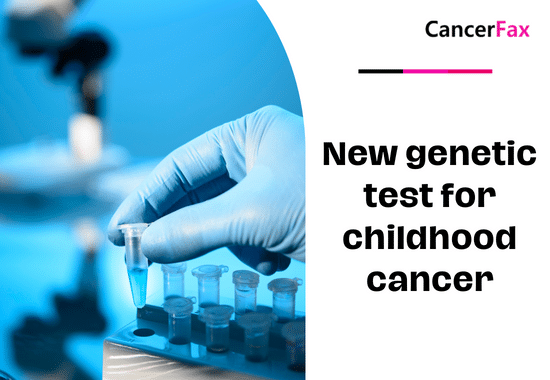British scientists begin genetic testing of childhood tumors. British scientists hope that genetic testing will give younger patients newer and more personalized treatments that will increase their survival. The new test analyzes 81 different cancer genetic changes.
Scientists say the test will lead to “a higher level of playing field” and accelerate children’s access to important new drug treatments. The test was performed at the Royal Marsden National Health System Hospital in London and will be tested on 400 children from all over the UK over the next two years.
The test has been implemented with genetic funding from the National Institutes of Health (NIHR) foundation and the Cancer Institute. A charity called Christopher has provided more than £ 300,000 in funding to develop the test. The organization was founded by a couple whose children died of invasive hjärntumörer vid sex års ålder.
This is a real first step towards personalized cancerbehandling for children,” said Christopher’s parents, Karen and Kevin Capel. Christopher got a generic tumör. Hopefully, in the future, children will know exactly what type of tumor they have.” “We almost feel that the treatment for the child is not to kill the cancer, but to kill our child.”
“He used to be a healthy, happy, very athletic 4-year-old kid. But he became unable to speak or even eat on his own, and lost weight. “In the year he was diagnosed, he was unable to grow into a child of his age. We tried to keep him from other children.”
Maligna tumörer är mycket sällsynta hos barn, det finns inte många patientpopulationer, och kliniska tester for pharmaceutical companies will lack motivation. This means that children will miss the opportunity to receive targeted treatments for cancer cells without damaging healthy cells with innovative therapies.
Professor Louis Chesler, who is leading the genetic testing research, said: “Children often don’t have equal access to the most advanced and potentially beneficial cancer treatments.” “The cost of developing gene-targeted drugs is very high. They tend to Test it on adults first so that more people can get treatment and the results can be seen faster. ”
“This test is an incredible advance because it will very clearly identify all genetic changes in the tumor.” “Gene testing gives clinicians an extremely powerful tool—helping them choose the right medicine for their children and do their best. It may be possible to quickly determine the effectiveness of these drugs. ”
Children’s tumors are usually genetically simpler than adult tumors, so eventually these drugs may be more effective in children.” The goal of genetisk testning is to give scientists and doctors detailed genes for childhood tumors within a few weeks of diagnosis. information.
Genetic testing gives doctors strong evidence to use riktade terapier for younger patients, potentially preventing these patients from experiencing the side effects associated with traditional chemotherapy and radiation therapy.
Jack Daly, 14, from Wokingham, was diagnosed with a brain tumor when he was 7 and is now a brain tumor överlevande. Radiotherapy helped save his life, but left him with sequelae. “My athletic ability is not very good,” Jack said. “I have to get someone to help me dress and undress at school.” “My balance is not good-I am awkward and often fall. I worked hard at school, where I found friendship.” Jack and his mother, Helen, use their donations to make ends meet in Capels-hoping that genetisk testning will make a huge difference in the quality of life of future children.
”Folk ser inte riktigt problemet eftersom Jack har återhämtat sig från cancer. Han behöver inte sitta i rullstol. Han behöver inte bära ett bandage”, sa Helen.
"Om du någonsin har sett Jack så ser han ut som en vanlig tonårspojke. Men det du inte ser är hjärnvävnadsskadorna som orsakas av behandlingen.”
Källadress till denna artikel: http://www.bbc.com/news/health-35918744


